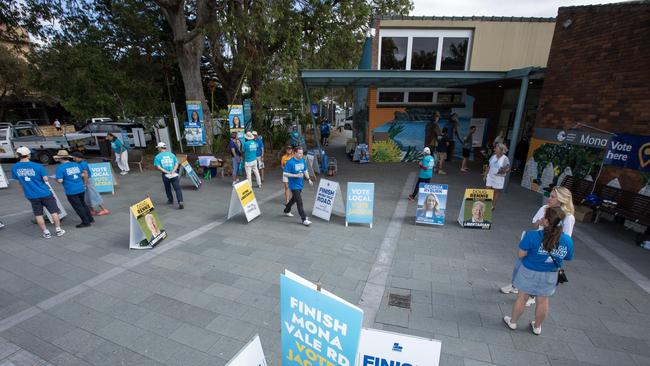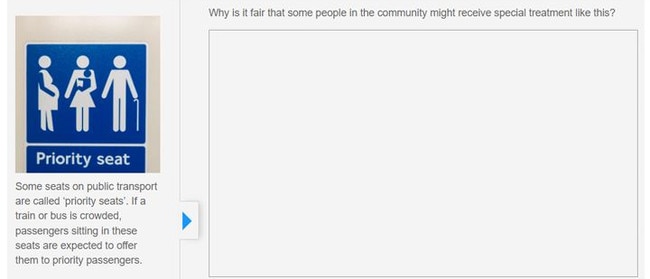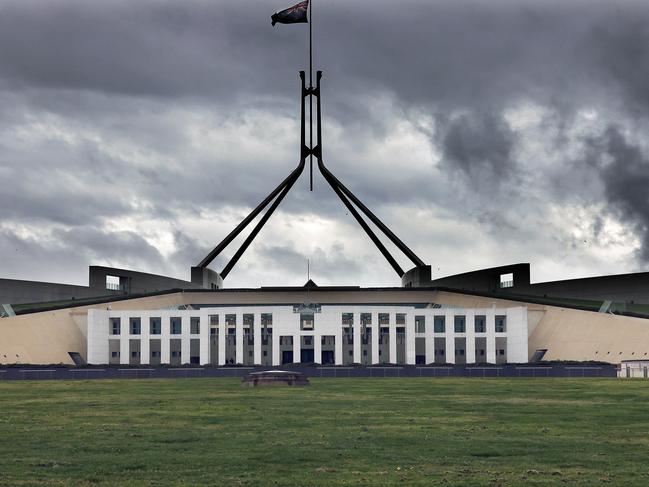NAPLAN 2024: Three in four high school students fail civics and citizenship test
‘Embarrassingly’ few Australian kids know enough about our democratic institutions and their own civic duty, new national testing reveals. Take the quiz yourself to see how you’d stack up.

Education
Don't miss out on the headlines from Education. Followed categories will be added to My News.
“Embarrassingly” few Australian kids know enough about our democratic institutions and their own civic duty, new national testing reveals, in what experts say should be a “wake-up call” for state and federal governments alike.
Results for the 2024 National Assessment Program (NAP) Civics and Citizenship (CC), administered by the Australian Curriculum, Assessment and Reporting Authority (ACARA), have hit a two-decade low.
Less than half of Australian primary school students have “proficient” knowledge of the nation’s democratic institutions and values, falling from 53 per cent in 2019 to 43 per cent in 2024.
Year 10 high school students’ scores were even worse, with only 28 per cent of students assessed meeting the benchmark, marking the lowest performance for both grades since the test’s inception in 2004.
Unlike the NAPLAN tests which assess all Australian students in Years 3, 5, 7 and 9, the NAP-CC took a representative sample of 9,844 students in 607 schools nationwide, quizzing them on Australia’s system of government, laws, and civic values like fairness and freedom.
Students respond to multiple choice and free-text questions like ‘Why does Australia maintain a system of compulsory voting’ and ‘What does a double majority (in a referendum) require’, as well as ethics-based questions like ‘Why is it fair that some people … might receive special treatment’ in the context of priority seating on public transport.
NSW primary-aged students fared marginally better than the national average, with 44 per cent of Year 6 students meeting the “challenging but reasonable” proficiency standard.

Children selected for the assessment were also asked to fill out a subsequent questionnaire, which revealed participation in civics and citizenship activities, such as excursions to parliaments and law courts, has decreased significantly over the last five years, especially for Year 10 students, owing in part to Covid-19 pandemic disruptions.
One of the nation’s foremost experts on civics and citizenship education, author and academic Dr Keith Heggart, said in NSW the state of the subject is “embarrassingly bad, it’s in a shambles”.
“If we had only 50 per cent of students who were literate or numerate, we’d be in uproar, and yet when it comes to civics, it’s not even a conversation we’re having,” he said.
“NSW doesn’t have a place for it in the curriculum – whereas other jurisdictions have a separate strand … we just hope it kind of gets integrated into history, geography and commerce.”

Dr Heggart, who is also a member of the education advisory group at NSW Parliament said teachers are “not well supported and completely out of their depth” when it comes to civics.
“It’s a bigger issue than just being able to vote in an election, I think it’s fundamentally a national security issue,” he said.
“We’re effectively creating a group of disenfranchised young people who don’t know how to engage with their civic rights, and it’s deeply concerning.”

Professor of Political Education and Chair of Education at the University of Sydney Dr Murray Print called on the New South Wales Education and Standards Authority to “take note of these disastrous results for NSW”.
“We need a stand-alone civics subject in NSW schools,” he said.

“The NAPCC results are a wake up call to governments who don’t fund civics and citizenship education … (and) are a warning sign for Australian democracy.”
NESA’s new Year 7 to 10 History syllabus will include mandatory civics study called “Making a Nation” which covers features of the Australian Constitution, separation of powers, voting and referendums, however schools have until 2027 to begin teaching it.
A NESA spokeswoman said the new syllabuses for HSIE subjects from Kindergarten will be “a nation-leading approach to civics and citizenship education” when introduced in two years, and argued against the creation of a separate course.
“There are significant advantages to students learning about civics and citizenship in subject areas where there is a natural fit rather than in a standalone course,” she said.
“This is because knowledge is built strongly, concepts are better understood and learners can better see the application of what they know when it is in context, such as throughout the History curriculum.”
ACARA CEO Stephen Gniel said the results of the report highlight the need to support teachers with high-quality resources to “effectively deliver engaging civics and citizenship education in classrooms across the country”.
“It is vital that all young Australians get a strong grounding with civics education to feel engaged with social and political issues, so that they can make a valuable contribution as society’s future stewards,” he said.





